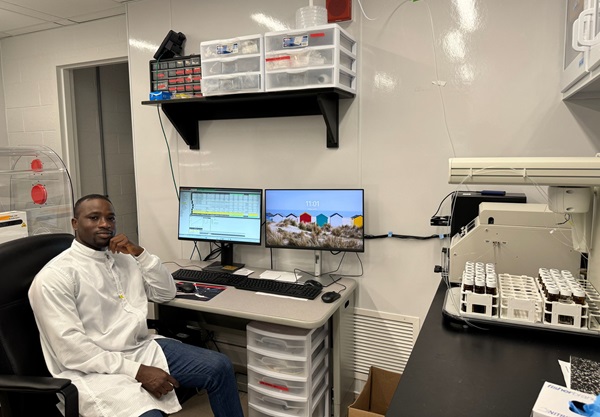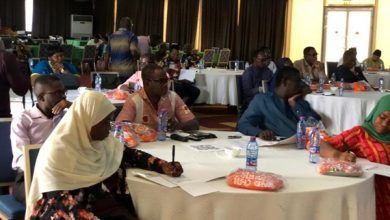Ghanaian Scientists Examine Household Water Quality, Urge Action for Safer Homes as Significant Chemical and Microbial Contaminants Found in Ghanaian Water Sources

Jonathan Awewomom, Research Scientist
The quality of water used in Ghanaian households is under fresh scrutiny following the publication of a groundbreaking research article revealing potential health-threatening levels of contaminants in household water sources in Kumasi.
The study, published in the Journal of Water Research under the supervision of professor Osei Akoto, Head of the KNUST Chemistry Department, was led by forensic and environmental scientist Jonathan Awewomom, currently affiliated to the Florida International University (FIU), USA.
He is also a former senior staff member of the Department of Chemistry at Kwame Nkrumah University of Science and Technology (KNUST) and previously served as an analytical technologist at Michigan State University, USA.
Health Impact:
The study assessed water from households in Kumasi using standard FDA water quality analysis techniques.
Results revealed that many of these water sources contain chemical and microbial contaminants that could pose non-carcinogenic and carcinogenic health risks to children and adults alike. Notably, elevated nitrate levels, coliform bacteria, and toxic metals such as lead (Pb) were detected in numerous samples.
“People consume this water daily without knowing the silent threats it poses to their organs and long-term health,” Jonathan Awewomom said.
Environmental Inequity:
According to the researchers, factors such as poor sanitation infrastructure, leaking pipelines, and lack of water treatment are contributing to the contamination.
The potential risks were found to be especially high for children, who are more vulnerable to nitrate poisoning and heavy metal toxicity.
In some urban areas, the proximity of drilled boreholes to septic systems and hand dug wells may also lead to subsurface leaching, further compromising groundwater quality
“Safe water isn’t a luxury; it’s a fundamental requirement for healthy living, everyone deserves access to safe water—it’s not a privilege, but a basic need This research gives a voice to many homes,” Jonathan emphasized.
Policy and Public Action Urged:
The team emphasizes that it is essential for every household to be informed about the quality of the water they use, as this knowledge is vital for protecting both individual and community health.
To this end, they are calling for stronger regulation, improved water treatment infrastructure, and expanded public education on safe water storage and handling practices.
“This research is more than data—it is a wake-up call for Ghanaian authorities and a tool for change,” said Jonathan.
The researchers hope the findings will guide policy reforms and inspire targeted interventions, especially in urban centers like Accra and Kumasi where population growth is straining basic amenities.
The project received valuable contributions from faculty members Dr. Francis Opoku and Dr. David Azanu.
It also received dedicated support of a diverse team of co-authors: Michael Yaw Peasah, Yaw Doudu Takyi, Agyei Gyasi Yaw, Sampson Achagiwe Antwi.
Others were Ayisi-Larbi Stephen, Opoku Adomako Kwabena, Janet Saaka, Emmanuel Amoah Dankwah, Angelina Afi Amaglo, and Isaac Korankye.
Source: Ghana/otecfmghana.com/Michael Ofosu-Afriyie, Kumasi




